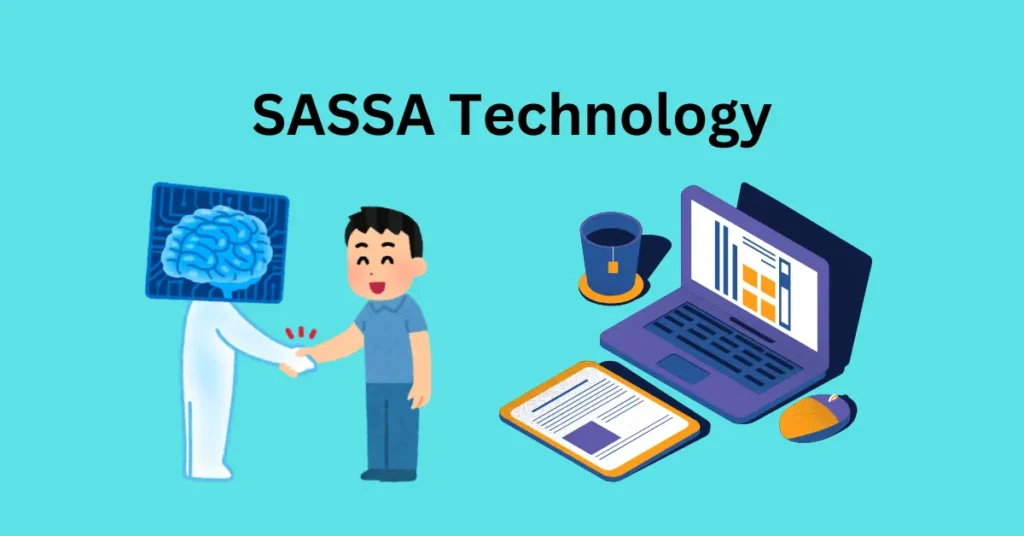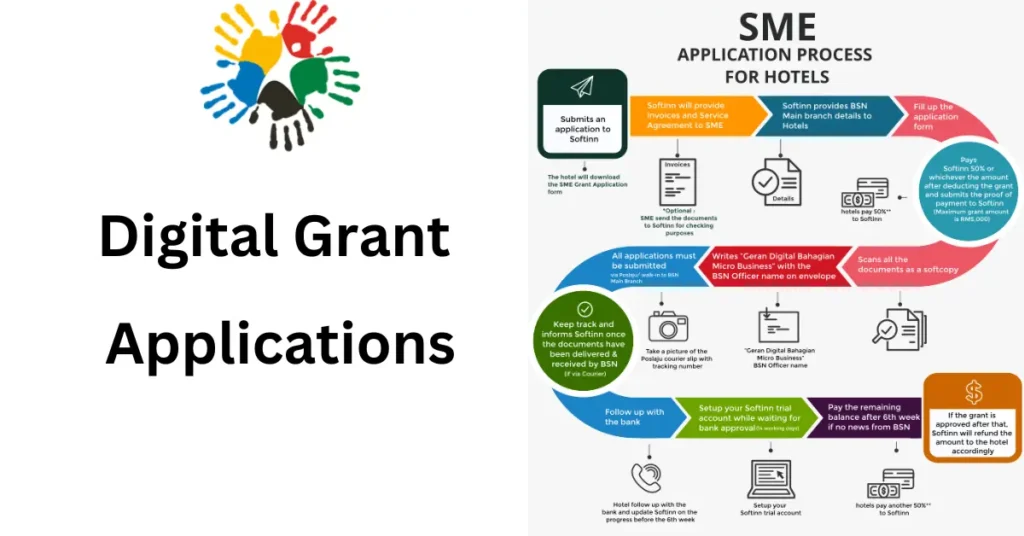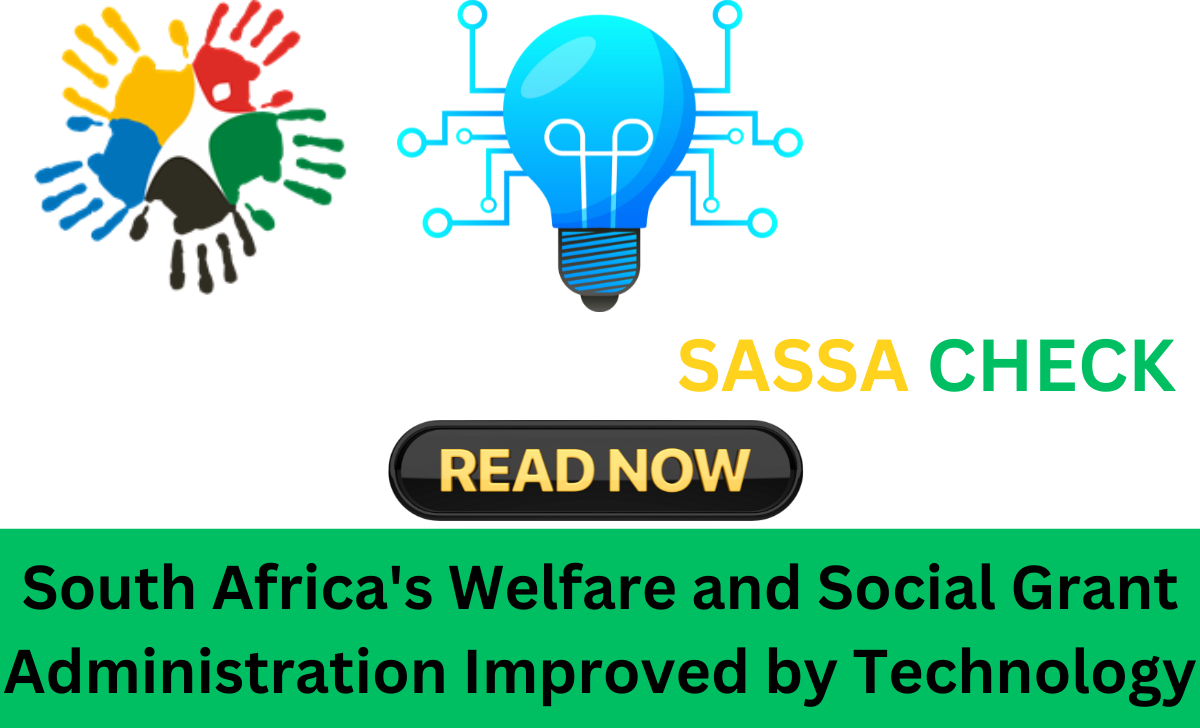South Africa’s Welfare and Social Grant Administration Improved by Technology: In order to advance and flourish, countries must adopt technology and new trends. Technology is transforming many industries, like education and healthcare. The role that welfare and social programs play in our society cannot be ignored when discussing progress. Now, technology actively supports social grants by facilitating administration and their impact.
Here we discuss the ways in which new technologies and trends have improved social grant management in South Africa.
Technology Making Welfare and Social Grant Administration better in South Africa
We’ll explore how South Africa is improving its social assistance and welfare program with the help of new technology.

Also Reda: Why is it necessary to have social grants in South Africa?
Digital Grant Applications
South Africa’s transition to digital means of applying for grants for the social sector has dramatically improved its efficiency. Individuals had to deal with lengthy paper applications and long waiting times in order to submit their personal application. Digital platforms have made the process much easier.

A key benefit to digital grants is that they can be completed and submitted from anywhere there’s internet, removing the need to drive long distances. This can be especially helpful for rural residents or those who live in areas that are underserved.
Effective Grant Payment Processing and Distribution
South Africa has seen a dramatic improvement in processing and payment of social grants since the adoption of digital technology. Payment systems are more efficient and reliable. A notable improvement in the payment system is direct deposits of grant funds into bank accounts and mobile wallets.
In the old days, it was necessary for grant recipients to personally collect their funds at designated distribution centers. This process could have been time-consuming. The shift from cash to digital payments allows funds to be transferred directly into recipient’s bank accounts and mobile money accounts. Using digital payments eliminates cash handling, and also guarantees that recipients receive their funds securely and quickly.
Direct deposits of grant funds also minimize administrative costs while reducing the likelihood of theft and fraud. By using payment technologies and electronic banking, the government has the ability to manage large amounts of transactions with accuracy and maintain audit trails.
You can track your Grant Status online
South African authorities, together with South African Social Security Agency SASSA (NGO), launched web portals for grant applicants to access the status of applications. These platforms offer real-time status updates to applicants on whether or not their grants were approved, declined, pending, etc.
SASSA implemented a sophisticated online system to facilitate the initial application and also allow recipients of grants to track their progress. Through the system, users can login to their account and input their unique details for their applications, as well as instantly receive information on their status.
This initiative is digital and offers grant seekers several benefits. Saving time and resource, it reduces the necessity for grant applicants to go into government offices in person or phone them with inquiries. It is possible for recipients to monitor the progress of their grant applications using their mobile phones or from their own homes.
Also Reda: UIF Unemployment Benefits
Taking Policy Decisions Based on Data
South Africa is becoming more data-driven in its policy making. Through the centralization of data about recipients, government agencies and NGOs are able to harness insights and enhance program delivery.
When using recipient data, it is possible to determine trends and patterns regarding grant usage and distribution. Analyzing data about grant disbursements and demographics can give policymakers a better understanding of challenges and the problems faced by various communities. This data driven approach allows for targeted resource allocation and interventions to be made, which ensures that the social grants reach those most in need.
Challenges of using technology to provide social grants and future opportunities
Challenges:
- Digital Divide Many marginalized communities do not have access to internet or technology services. This makes it difficult for them to apply digitally to grant-making platforms.
- Data Safety: Centralized database storing sensitive recipient data requires robust security measures.
- The Technical Infrastructure: Lack of technical infrastructure, especially in remote areas, can pose a challenge to the implementation of digital payment and online platform platforms.
- Limitations in Digital Literacy Some populations have limited levels of digital literacy, which may limit the effectiveness and adoption of online grant processes.
Future Opportunities:
Mobile Technology Innovation By developing user-friendly mobile apps for grant application and tracking status, it is possible to improve the convenience and accessibility of beneficiaries.
Extending Access:Investing to Improve Internet connectivity and Digital Access in Underserved Communities will allow for more people to benefit from the online grant and payment system.
Enhanced Analyses: The use of advanced data analysis can give deeper insights into patterns in grant allocation, which will enable more targeted interventions.
Conclusion
South Africa’s welfare grant and technology management has been greatly enhanced by the introduction of new technologies. This digital method for grant applications has significantly increased the transparency, accessibility and efficiency of this program.
Amidst obstacles, such as concerns about data security and the digital gap, many other opportunities exist to leverage technology for greater accessibility, to boost analytics, or to foster innovation in service delivery.
South Africa will continue to benefit from its social grant programs and investments in new technologies by continuing to invest in these areas.
